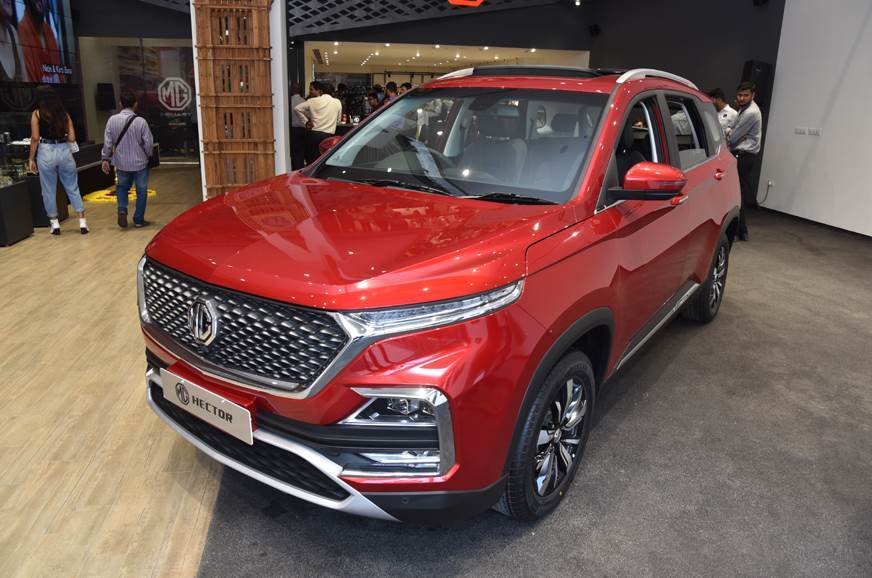Jaguar Land Rover has confirmed it will cut 4,500 jobs from its UK workforce as part of a major cost-cutting programme aimed at building long-term, profitable growth.
The cuts account for around 10 percent of the Tata Motors'-owned company’s 43,000-strong staff across the country, which includes plants in Castle Bromwich, Solihull and Halewood, Liverpool. The job losses are in addition to 1,500 workers cut last year.
There are no specifics on which locations the jobs will go from, but the carmaker said the workforce will initially be reduced through a voluntary redundancy programme.
Jaguar Land Rover CEO Ralph Speth said: "We are taking decisive action to help deliver long-term growth, in the face of multiple geopolitical and regulatory disruptions as well as technology challenges facing the automotive industry."
Today's announcement by the UK’s largest car manufacturer follows falling demand for its sedan cars and diesel engines, along with a sharp fall in sales in China. As a result, in the third-quarter of 2018 it posted a loss of £90 million (around Rs 808 crore).
In addition to the Chinese slump, Jaguar Land Rover – and to some extent, the broader car market – has been affected by a number of other factors including Brexit, US trade tariffs, negativity around diesel and new WLTP regulations.
The job cuts form part of what JLR calls a “turnaround and transformation programme” which is set to improve cashflow and costs to save £2.5bn (around Rs 22,459 crore) over 18 months.
JLR cut 1,000 jobs at its Solihull plant – which it also shut down for two weeks in October last year – due to reduced demand. In December, its Castle Bromwich site, which produces models including the XE and XF, operated on a three-day week.
No factory closures and electric investment
Despite the job losses, JLR has made no mention of any plans for immediate factory closures. It did, however, confirm further UK investment in electrification with electric drive units to be made at its Wolverhampton powertrain plant from 2020. It said the move will help safeguard jobs at the plant as buyers move away from internal combustion engines.
There will also be a new battery assembly centre at Ham’s Hall, described as one of the largest of its kind in the UK, using new production techniques and technologies to produce battery packs and modules for future Jaguar and Land Rover models.
The focus on the production of electrified powertrains reinforces the firm’s announcement in 2017 that every JLR vehicle launched from 2020 will have an electrified variant. It already offers plug-in hybrid Range Rover and Range Rover Sport models, as well as the well-received electric Jaguar I-Pace.
New models on the cards
There was also no mention of any plans to scrap any of JLR's 13 model lines in the announcement. Autocar sources also suggest that the firm is continuing to evaluate entering new segments where premium growth is likely.
This year, the second-generation Range Rover Evoque will go on sale and the highly anticipated new Land Rover Defender will be revealed. Further down the line, an electric Jaguar XJ is expected as is a J-Pace, a large SUV to sit at the top of Jaguar’s growing SUV range.
Most growth is expected through its SUVs, which tallies with the broader market trends, while the biggest question mark is over Jaguar’s sedan range which has struggled against German rivals.
Jaguar Land Rover sales fell 4.6 percent last year to 5,92,708 units. UK sales were down a modest 1.5 percent to 1,15,691, while China was worst hit. Sales there fell 21.6 percent from 1,46,399 units to 1,14,826 units. That means both Europe and North America now lead sales for JLR, putting China in third place. By comparison, in 2017, Chinese sales topped JLR’s chart.
The company said it remains fully committed to the Chinese market, adding it has long-term confidence in that market. The recent fall is being blamed on ongoing uncertainty on import duty charges and trade tensions.
RACHEL BURGESS
from Autocar India http://bit.ly/2TDqDen
via IFTTT

No comments:
Post a Comment